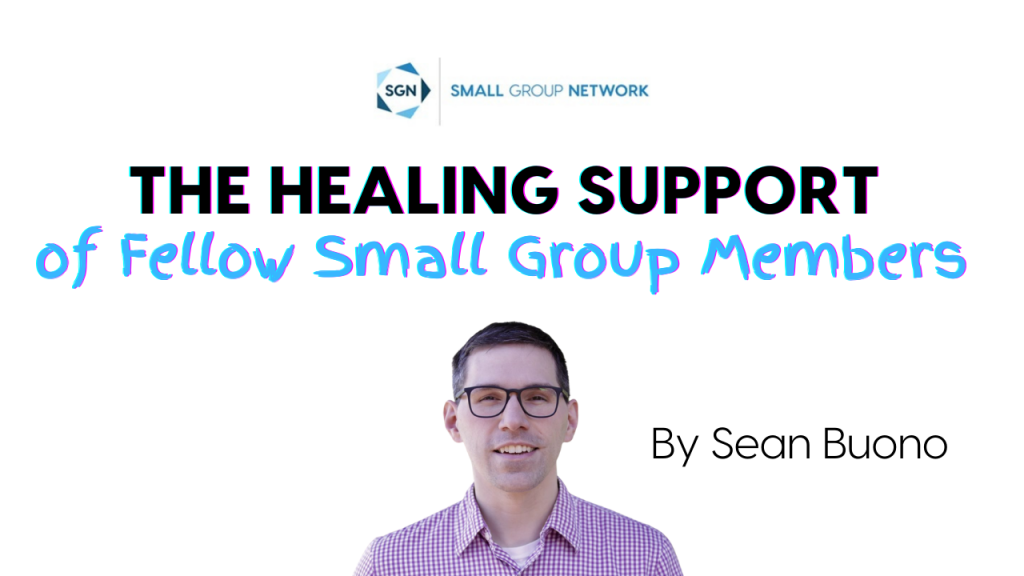
During various moments within each of our lives, we are confronted with events or circumstances that give us the opportunity to pursue inner healing. Until we are called by the Lord and meet Jesus in heaven, we are exposed to the inevitable pain and challenges of this world. While the hurt and lies that we may have experienced can create spiritual scars on our souls, we tend to find activities, habits, and behaviors to cover up or ignore these scars throughout our adulthood. Yet due to the pandemic, the lockdowns, and the impact on mental health that isolation has made upon us, we have begun to recognize that the events surrounding this last year have acted as a revealing agent, exposing the underlying spiritual struggles that may have lay dormant until now. For example, an individual struggling with self-value and performance addiction may have been able satisfy that gap at the office or on the ballfield; or perhaps a person afflicted by a lack of love and acceptance within their lives may have been able to find temporary solace within the dating scene. However, due to such a drastic interruption to our normal schedules, hobbies, and outlets, many of us were suddenly confronted with the turmoil of our spiritual wounds that we were no longer able to ignore or cover up.
Perhaps this may be partially why the world is now experiencing a mental health crisis, and perhaps this may also be why the pursuit of inner healing has become a hot topic of ministry as of late. Recently, I was able to read more on this concept of inner healing, as introduced by Dr. Terry Wardle in his book Healing Care, Healing Prayer, an excellent resource for any minister or caregiver that provides care at the individual level. However, what if we were to instead explore Dr. Wardle’s work through the lens of a church’s small group ministry?
The Structures Inner Healing
Wardle explains in his book that in order to experience inner healing from the wounds that are buried deep within our lives, we must first identify the lies and distortions that the evil one has used to lead us astray. But in order to identify these lies and distortions, we must first walk through the emotional upheaval that comes from confronting the dysfunctional behaviors that had caused the original disrupting life situation. For example, let us propose a hypothetical situation where a man who is a part of a small group shares that his wife has left him (the disrupting life situation). As the group discusses the serious matter in depth, it is discovered that one of the reasons that she had left him was due to the daily heated arguments that would inevitably lead to him inflicting verbal abuse upon his wife (dysfunctional behavior). From here, the man begins to repent in his heart and learn from his fellow group members about the role that God called him to uphold as husband and how such behavior is sinful (emotional upheaval). As the group explores the matter further, the man explains that since the husband was supposed to be the leader of the household, he always had assumed that there was no need for compromise since he presumably had the right to call the shots within all areas of the household (Lies and distortions). Finally, at the deepest moment in the journey, the man discovers that the lies he has believed for so long may likely be linked to the trauma he experienced as a child, witnessing his father severely abusing his mother.
The Group as a Partner, Not a Doctor
Within the context of a small group, one of the most crucial elements for a person’s ability to open up to others in their journey of inner healing is the group’s ability to offer a loving and trustworthy level of grace and support. This hypothetical scenario would not take place without prayer or without the Holy Spirit’s involvement, and it would almost certainly not happen within the length of one small group meeting. In fact, there’s no guarantee that all of the aforementioned stages could be completed within the environment of the small group. Yet what is important to note is that the higher the quality of love and support that the group can offer to the hurting individual, the better the chances are for the group to be able to walk alongside the person throughout the journey of inner healing.
The Need to Be Understanding
Still, we must remain practical. Although it would be ideal to believe that all of these structures of inner healing would go as swimmingly as this pretend scenario, we also must be comfortable with the pace at which the individual actually responds to the promptings of the Holy Spirit. Perhaps the man might only offer the surface level of details about his wife leaving him before making the decision to seek professional care. Or perhaps the group is able to help him walk through some of the emotional upheaval involved with repentance before he ends up seeking additional care from their pastor or a counselor. Regardless, what is important to stress here is a reiteration of what was mentioned in the previous article: that small groups are not meant to be a replacement for counseling, and nor could it be promised that small groups can be as effective as or more effective than professional care. Instead, what the group members can strive to do is to be a supportive partner for the individual who is pursuing the journey of inner healing.
Indeed, deep wounds take time to unravel, and an individual that traverses through the experience of inner healing often finds that the complexities of each of these steps are layered upon one another and that they must be peeled back slowly in order to identify the next steps that lay ahead. Some individuals are more introspective in their style when reflecting upon serious matters of the heart, while others need to process their thoughts through the interaction with others. Nevertheless, either style requires the small group to submerge their meetings in submissive prayer while they meet the individual in their current position of the inner healing journey, all the while they continue to support the person with a phileo-like love that upholds and exemplifies friendship, companionship, and openness.





